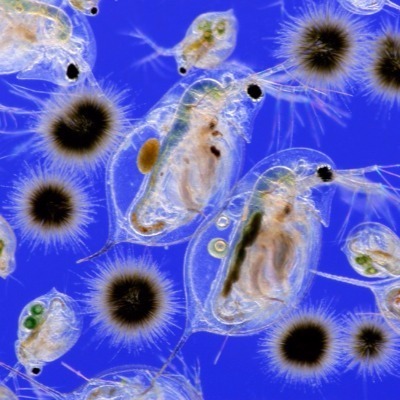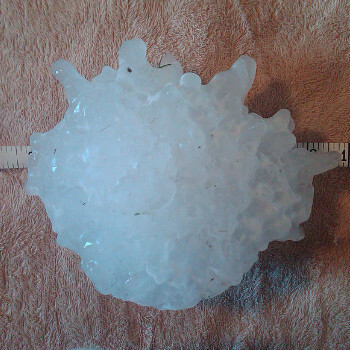Plankton is the name given to the a set of tiny organisms that live scattered in fresh or marine water, integrating the aquatic ecosystem. Plankton can belong to both the animal and plant kingdoms (photosynthesizers).

These beings do not have locomotion capabilities, for this reason their transport is done predominantly through water currents, for example.
These tiny living beings play an important role in the food chain, as they are a source of food for many fish and other aquatic animals.
Etymologically, the word plankton originated from the Greek plagktos, which can be translated as "wandering" or "unstable".
See also about the Animal Kingdom.
Phytoplankton and Zooplankton
The plankton groups consisting of planktonic algae and cyanobacteria are called phytoplankton, and, like other plants, produce photosynthesis.
Phytoplankton also play another important role in sustaining life on Earth: the production of oxygen. Much of this gas, essential for living beings, is produced by plankton that live in oceans, rivers and lakes, for example.
Small animals, such as tiny crustaceans and insect larvae, for example, are classified as zooplankton.
Zooplankton are further classified according to how long they live as plankton. For example, beings who always live in this condition are called holoplankton or permanent zooplankton. Those that pass only one stage as plankton (insect larvae, for example), are known as meroplankton or temporary zooplankton.

